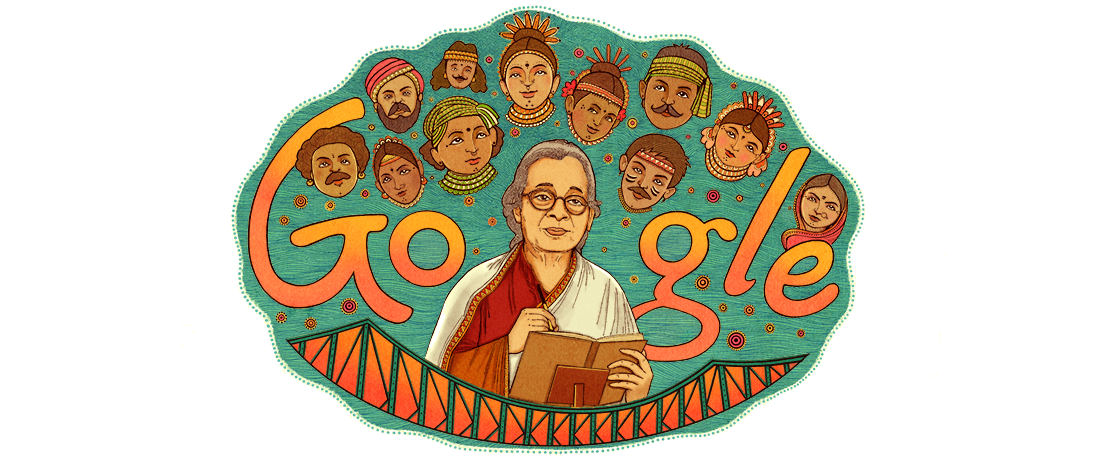A Google Doodle commemorating what would have been Mahasweta Devi's 92nd birthday has been released on 14 January 2018.
The Indian literary icon passed away in July 2016, at the age of 90, and was accorded a state funeral by West Bengal chief minister Mamata Banerjee, who said: "India has lost a great writer. Bengal has lost a glorious mother. I have lost a personal guide. Mahashweta Di rest in peace."
The Google Doodle depicts Mahasweta Devi's portrait, surrounded by the faces of the people whose cause she championed — through her books and in life. The tribals, the downtrodden and the oppressed — those whose stories weren't considered worth narrating, these she made her own.
"The reason and inspiration for my writing are those people who are exploited and used, and yet do not accept defeat," she once said.

Born in 1926 in Decca (what is now Dhaka) in British India, Mahasweta Devi was the daughter of literary parents — her father Manish Ghatak was a poet and novelist, her mother Dharitri Devi was a writer and activist. Her uncle was the filmmaker Ritwik Ghatak. Mahasweta herself decided to pursue English literature, gaining a BA and MA degree in thr subject; she taught at a Kolkata college (after trying out various other jobs like working at a post office, selling soaps and letter writing).
Mahasweta Devi wrote over 100 novels and 20 collections of short stories, but her most noted works remain Hajar Churashir Maa, Rudali and Aranyer Adhikar. The former two were also made into critically acclaimed films.
"...it was the subjects that Mahasweta Devi chose to write about that commanded attention. She was one of the first to bring adivasis into the literary limelight, long before it became fashionable to take up their cause in this country and abroad. The poor, the downtrodden, the tea garden workers, the deprived and oppressed had always been the stuff of Leftist fiction but no one made the lot of the tribals their own as Mahasweta Devi," wrote Gouri Chatterjee for Firstpost, in an obituary for Mahasweta Devi.
Not just in her writings, through her activism too, she fought for the rights of those who had been forcibly shoved aside, or ignored, by the mainstream. Her work won her several honours, among them the Sahitya Akademi Award, Ramon Magsaysay Award and the Padma Vibhushan. In recent years, she also highlighted the forcible land acquisition issue in Singur and Nandigram — a firebrand to the end.
"My India still lives behind a curtain of darkness," Mahasweta Devi once said. With her writings and her activism, she attempted to lift that curtain and give us a glimpse of what lay behind it.

Comments
Post a Comment